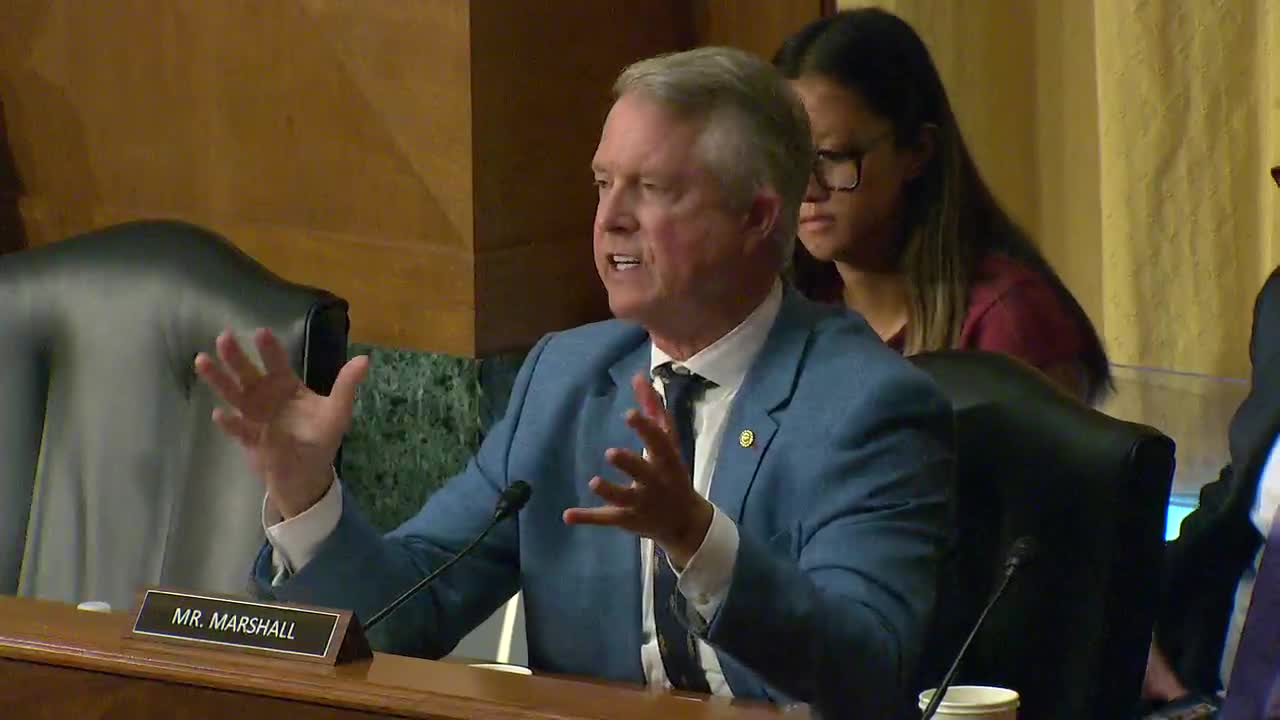Senate Committee Questions HHS Secretary on Vaccine Data and Autism Study Transparency
September 04, 2025 | Finance: Senate Committee, Standing Committees - House & Senate, Congressional Hearings Compilation
This article was created by AI summarizing key points discussed. AI makes mistakes, so for full details and context, please refer to the video of the full meeting. Please report any errors so we can fix them. Report an error »

In a heated exchange during the US Senate Committee on Finance meeting, discussions surrounding the COVID-19 vaccine and its implications took center stage, revealing deep divisions among lawmakers. The debate highlighted the complexities of understanding COVID-related mortality and the vaccine's role in public health.
One senator emphasized the confusion surrounding the distinction between deaths caused by COVID-19 and those of individuals who had the virus but died from other causes. "How many people died from COVID versus with COVID is a different answer," he stated, underscoring the need for clarity in public messaging. He praised the rapid development of the vaccine under President Trump's leadership, calling it a "miracle" that likely saved millions of lives, while also acknowledging that, like all vaccines, it carries risks.
The conversation shifted to the resignation of Dr. Daskalakis, the former director of the National Center for Immunization and Respiratory Diseases, who claimed he was not allowed to brief the committee. This raised questions about the sources of information being used by health officials. One senator pressed Secretary Kennedy for the names of experts providing briefings, leading to a tense back-and-forth about the qualifications of those involved in vaccine safety studies.
The discussion also touched on a forthcoming study purported to reveal the causes of autism, which some senators viewed with skepticism, questioning the credibility of the researchers involved. The secretary's reluctance to commit to sharing study protocols with Congress further fueled frustrations, with one senator suggesting that a subpoena might be necessary to obtain the information.
As the meeting concluded, the tension was palpable, with senators expressing disappointment in the administration's transparency and accountability regarding vaccine safety and public health data. The implications of these discussions are significant, as they reflect ongoing debates about vaccine efficacy, safety, and the government's role in managing public health crises.
One senator emphasized the confusion surrounding the distinction between deaths caused by COVID-19 and those of individuals who had the virus but died from other causes. "How many people died from COVID versus with COVID is a different answer," he stated, underscoring the need for clarity in public messaging. He praised the rapid development of the vaccine under President Trump's leadership, calling it a "miracle" that likely saved millions of lives, while also acknowledging that, like all vaccines, it carries risks.
The conversation shifted to the resignation of Dr. Daskalakis, the former director of the National Center for Immunization and Respiratory Diseases, who claimed he was not allowed to brief the committee. This raised questions about the sources of information being used by health officials. One senator pressed Secretary Kennedy for the names of experts providing briefings, leading to a tense back-and-forth about the qualifications of those involved in vaccine safety studies.
The discussion also touched on a forthcoming study purported to reveal the causes of autism, which some senators viewed with skepticism, questioning the credibility of the researchers involved. The secretary's reluctance to commit to sharing study protocols with Congress further fueled frustrations, with one senator suggesting that a subpoena might be necessary to obtain the information.
As the meeting concluded, the tension was palpable, with senators expressing disappointment in the administration's transparency and accountability regarding vaccine safety and public health data. The implications of these discussions are significant, as they reflect ongoing debates about vaccine efficacy, safety, and the government's role in managing public health crises.
View full meeting
This article is based on a recent meeting—watch the full video and explore the complete transcript for deeper insights into the discussion.
View full meeting